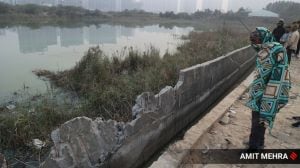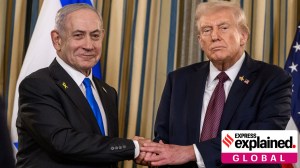Justice speaks
Last December, in an emotional verdict 8212; which was incidentally the first trial and conviction under the Prevention of Terrorism Act P...

Last December, in an emotional verdict 8212; which was incidentally the first trial and conviction under the Prevention of Terrorism Act Pota 8212; Additional Sessions Judge S.N. Dingra had ruled all four alleged conspirators in the Parliament attack case as guilty and went on to sentence three of them to death. Many had regarded this as a miscarriage of justice 8212; and this newspaper had concurred with them 8212; since the court appeared to have failed to establish beyond reasonable doubt the involvement of Delhi college lecturer S.A.R. Geelani and Afsan Guru, the wife of one of the accused, in the conspiracy. Given this background, Wednesday8217;s Delhi High Court ruling acquitting these two individuals, while upholding the sentence of capital punishment against the two deemed guilty 8212; Mohammad Afzal and Shaukat Hussain 8212; is to be welcomed.
Indeed, it highlights the strengths of the Indian judicial process and the eternal quest for justice even in a case that has such resonance in the country since it involved the storming of its parliament. The fact, however, is that while the two found guilty were actually caught with evidence of involvement on their person while fleeing from Delhi to J038;K, the case against the other two rested on mere telephone transcripts. There was an important point made by the high court with regard to this. It pointed out that 8220;evidence should not only be consistent with the guilt of the accused but should in addition be inconsistent with his innocence8221;. Clearly, the case against Geelani and Afshan Guru did not measure up to this yardstick.
Given the high profile nature of the case, the exemplary speed with which the courts have chosen to deliver their verdicts is gratifying. When Parliament was stormed on December 13, the one desire of every citizen was that the guilty be brought to book as expeditiously as possible, so as to ensure conclusively and for all time that another attack of this kind never takes place. So unthinkable was that storming of Indian democracy8217;s highest institution, so horrifying the prospect that it could have put in jeopardy the lives of the country8217;s elected representatives, that December 13 has come to be something of a marker in the national psyche. But the very significance of a case that has attracted not just national but international attention, also meant that judicial scrutiny and pronouncements on it must appear above reproach. We believe that the Delhi high court verdict has passed this difficult and crucial test.
- 01
- 02
- 03
- 04
- 05































